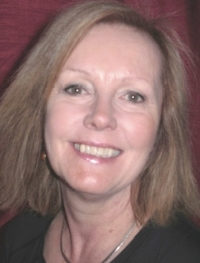Mary Mountstephen leads a large specialist support centre at a major international independent school and is an educational and neuro-developmental delay specialist in private practice, as well as being an international consultant to schools and organizations. She has an MA in Special Education and many years’ experience teaching in mainstream, independent and special schools. Mary lives in Glastonbury, UK.
Here, she answers some questions about her new book,
How to Detect Developmental Delay and What to Do Next: Practical Interventions for Home and School.
How did this book come about?
I have worked in education for many years and have always looked for ways to help children who are failing to thrive. This book came about as the result of talking to many parents and teachers who were frustrated at not being able to get either a diagnosis or an understanding that their child was not naughty or stupid, but living with an invisible disability which is preventing them from working to their potential.
The important thing for me is that every child is valued and that we look at the causes of their difficulties rather than just the presenting symptoms: Why are they struggling in school and what can we do about it that is simple and easily implemented as the first stage in supporting them? For example, I write about developmental movement programmes which a teacher can easily learn and use for the whole class. The whole book is about looking at the child in relation to their developmental history, environment and other factors.
What is a developmental delay? Why does it occur?
There are many forms of developmental delay where children might fail to meet their developmental milestones. This can occur for a number of reasons such as difficulties/stress in pregnancy and early childhood, lateness in walking and talking for example.
What are some typical signs of developmental delay, and why might they be overlooked or misinterpreted?
See above in terms of walking and talking. Visual problems might also not be picked up by a regular eye check or misdiagnosed as dyslexia.
Auditory problems might be perceived as emotional or behavioural issues when children pass a hearing test, but still can’t process information effectively.
My book helps by providing practical advice, explanations and a route map to possible interventions.
What can parents and teachers do to intervene in the absence of a diagnosis, or while they are waiting for one?
A formal diagnosis can provide access to help/assistance in some countries. It also helps the family and the child to gain insight into the difficulties and helps schools to identify ways to support.
Whilst waiting for a diagnosis, or unable to afford one, parents can use the book as a ‘guide on the side’ to support them. I have also included information about cost effective ways to find out more about their child’s problems and this also applies to busy teachers.
Copyright © Jessica Kingsley Publishers 2010.
